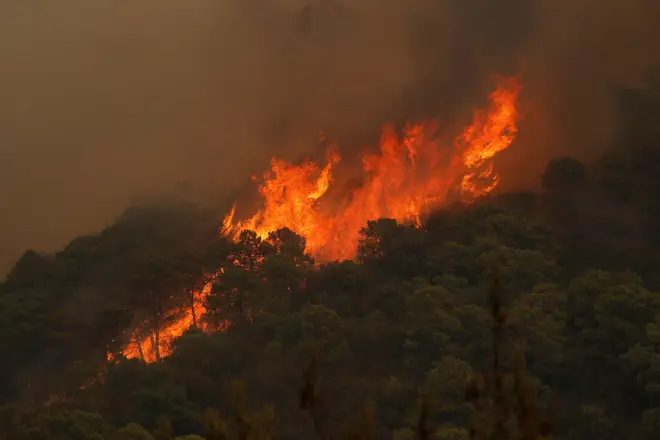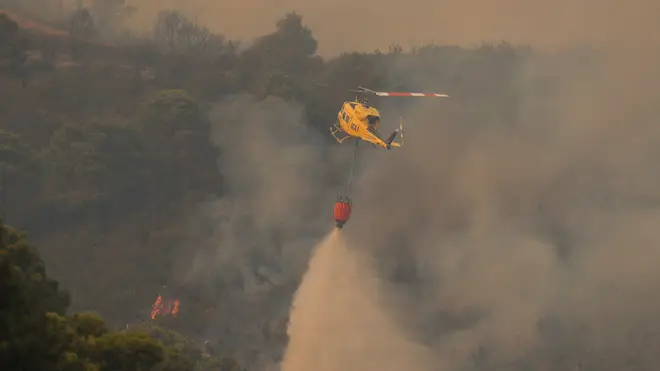
Richard Spurr 1am - 4am
13 September 2021, 08:06 | Updated: 13 September 2021, 08:08

The military has been deployed to tackle wildfires on the Costa del Sol while panicked residents have been told to flee the area.
Over 260 soldiers from an emergency unit were sent to towns in Malaga, including Jubrique, Farajan, Genalguacil and Pujerra.
The fires started on Wednesday. Since then, more than 300 firefighters and 41 water-dropping aircrafts have been battling the flames.
The ongoing wildfires have seen 7,000 hectares of forest destroyed while 2,500 people have been forced to evacuate their homes.
Nearly 1,500 were told to leave on Sunday alone, following the evacuation of more than 1,000 residents before the weekend.
Read more: UN climate change report: What does it say? And why are there concerns?
Read more: 'It's a crisis': Ex-Chief Scientific Adviser talks to LBC about climate change

Rafael Fanega, a firefighter at the scene, said the outbreak remained "out of control", calling for more boots on the ground.
"I don't see enough deployed personnel," he told Associated Press, speaking in Jubrique after it was evacuated.
"Some may see it differently, but that's how I see it."
Another firefighter died on Thursday while trying to extinguish the blaze.
It comes after Alejandro Garcia, deputy operational chief of Plan Infoca, said the strength of the fire was "unsual" compared to what they were used to in Spain.
Spain's Ministry for Ecological Transition previously revealed that, as of August 29, 186,000 acres of forest and bush areas in the country had burnt in 2021.
Climate scientists have said there is little doubt that climate change from the burning of coal, oil and natural gas is responsible for the increase in extreme events, including heatwaves, droughts, wildfires, floods and storms.